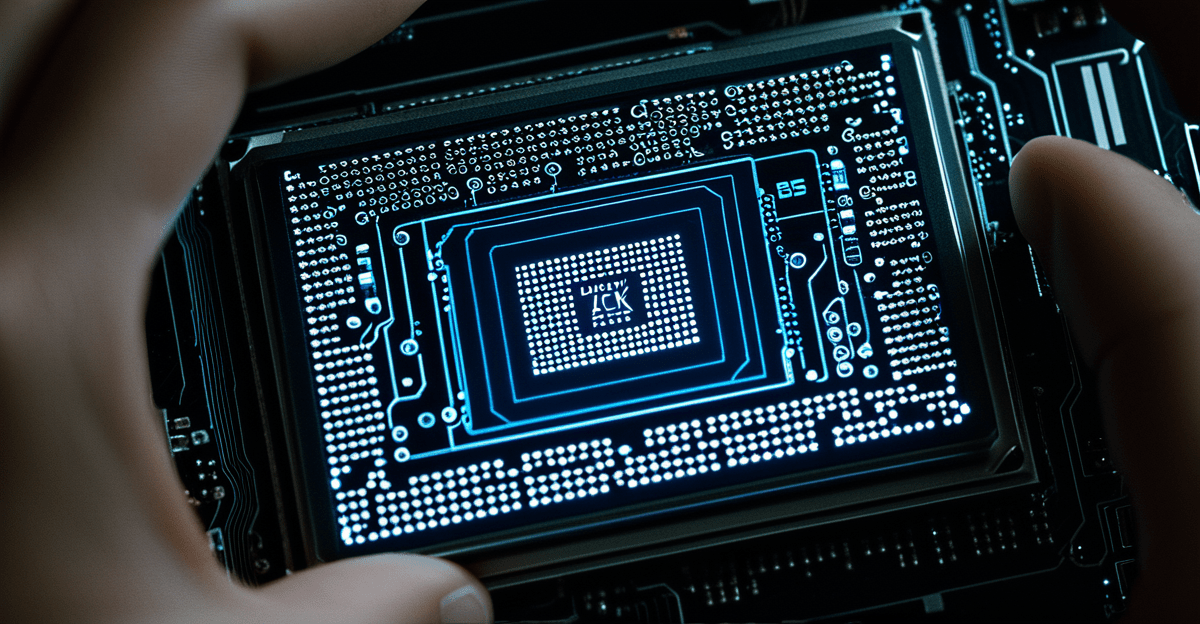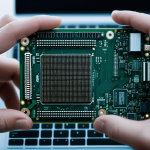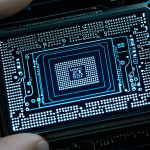Effects of Emerging Technologies on UK Computing Hardware
Emerging technologies are profoundly reshaping UK computing hardware, driving evolution in design, performance, and manufacturing processes. Innovations such as AI, quantum computing, and IoT are not only influencing product capabilities but also altering how hardware is developed and produced across the UK.
The immediate impact on UK computing hardware includes enhanced processing power and efficiency, enabling devices that are faster, smaller, and more energy-efficient. These advancements challenge traditional manufacturing methods, pushing UK factories toward automation and integration of smart technologies.
In parallel : What role does UK computing hardware play in enhancing machine learning applications?
Industry implications extend beyond production to market dynamics. Emerging technologies are causing a shift in consumer demand and competitive landscapes. UK companies are seizing opportunities to innovate hardware tailored to new technological needs, such as devices designed for connected IoT environments or AI-optimized components. However, this rapid evolution also brings challenges, including the need for skilled talent and streamlined supply chains.
Overall, the influence of emerging technologies on the technology impact in the UK hardware industry is profound, marking significant transformation and setting the stage for future growth and global competitiveness.
In parallel : How does UK computing hardware influence educational technology solutions?
The Role of Artificial Intelligence in UK Hardware Innovation
Artificial intelligence is a key driver of UK hardware innovation, profoundly influencing design and development. AI integration enables more precise and efficient semiconductor production, optimising component architectures for better performance and energy use. For example, machine learning algorithms assist in detecting manufacturing defects early, reducing waste and improving yield.
UK companies are leading in AI-enhanced hardware solutions, with startups and established firms deploying AI to create adaptive chips and smart sensors. These components can learn and adjust function dynamically, which enhances device responsiveness. This innovation boosts competitiveness, positioning the UK as a hub for AI-driven technology impact in hardware.
Challenges remain, particularly in adopting AI at scale. Manufacturers must invest in AI expertise and overcome integration complexities, such as harmonising AI with legacy systems. Nevertheless, these hurdles present opportunities to build specialised skills within the UK workforce, encouraging collaborative innovation between academia and industry. Overall, AI integration offers a transformative pathway for the UK hardware sector, driving enhanced design capabilities and opening new market possibilities.
Quantum Computing: Anticipated Transformations and UK Readiness
Quantum computing promises to revolutionise the UK technology sector by introducing unprecedented processing speeds and capabilities. The UK’s significant investments in quantum research and development focus on building scalable quantum hardware tailored for complex problem-solving in cryptography, materials science, and optimisation. Leading academic institutions and public-private partnerships are propelling advancements in qubit stability and error correction, essential for practical quantum devices.
Industry implications are considerable. Quantum technology has the potential to disrupt existing computing paradigms, creating new markets for specialised hardware while challenging traditional semiconductor industries. UK firms engaged in this sector must anticipate shifts in design and functionality requirements. However, adoption barriers remain high due to hardware fragility, error rates, and the need for ultra-cold environments, which complicate commercial scaling.
Still, the UK is positioning itself as a global contender by fostering innovation ecosystems that integrate quantum research with hardware manufacturing. Strategic focus on overcoming technical hurdles will be critical to translating quantum computing breakthroughs into viable product lines, thereby expanding the technology impact across the broader UK hardware landscape.
Quantum Computing: Anticipated Transformations and UK Readiness
Quantum computing represents a significant frontier in the UK technology sector, promising to revolutionise future hardware capabilities. The UK has strategically invested in quantum research and development to establish leadership in this emerging field. Key initiatives include government-funded quantum hubs and partnerships between academia and industry aimed at advancing quantum processor designs and error-correction techniques.
The technology impact of quantum computing on UK computing hardware could disrupt existing paradigms by enabling unprecedented computation speeds and solving complex problems unfeasible for classical machines. Such advances present opportunities in cryptography, optimisation, and materials science sectors, aligning with UK ambitions to foster innovation-driven growth.
However, commercial adoption faces barriers such as high hardware costs, fragile qubit stability, and the need for specialised expertise. The UK must bridge these gaps through sustained funding, workforce development, and infrastructure upgrades. Industry implications include shifts in hardware manufacturing towards quantum-compatible components and a redefined competitive landscape.
In summary, while quantum computing promises transformative benefits for the UK technology sector, readiness requires coordinated efforts to translate research advances into scalable, market-ready hardware solutions.
Impact of IoT and Connectivity on Computing Hardware in the UK
The rise of the Internet of Things (IoT) is significantly shaping UK computing hardware development, demanding devices that are more interconnected and responsive. Emerging technologies have accelerated the creation of hardware designed specifically for seamless connectivity across diverse environments. This shift requires components to support stable wireless communication, energy efficiency, and enhanced processing for real-time data analysis.
Security is a crucial consideration as IoT devices increase. UK manufacturers face the challenge of integrating robust protective measures to counteract vulnerabilities inherent to widespread connectivity. Ensuring interoperability among myriad devices and standards is another complex issue, pushing hardware developers to adopt flexible, adaptable designs.
Examples abound within the UK ecosystem, where IoT-driven innovations include smart home devices, industrial sensors, and healthcare monitoring tools. These applications demonstrate how emerging technologies are redefining device functionality and user expectations. The technology impact of IoT extends beyond hardware alone, influencing overall network infrastructure and data strategies in the UK.
In summary, the expanding role of IoT is causing notable industry implications, encouraging UK hardware firms to prioritise connectivity features and security while navigating evolving market demands.
Advanced Manufacturing Trends Shaping UK Hardware Production
Emerging technologies are driving advanced manufacturing in UK hardware production, transforming traditional factories into smart factories. Robotics and automation are now integral in assembly lines, enhancing precision and efficiency while reducing human error. This shift allows UK hardware firms to meet increasing demands for speed and customisation, fostering competitiveness in the global market.
Additive manufacturing, such as 3D printing, plays a growing role in creating bespoke components tailored for specific applications. This flexibility supports innovation in UK hardware production by enabling rapid prototyping and on-demand manufacturing, which shortens development cycles and reduces waste.
Workforce implications are significant. Automation requires new skill sets; UK production lines are investing in upskilling workers in robotics programming and maintenance. This focus expands the talent pool, preparing the industry for ongoing technological integration. Balancing human expertise with automated systems ensures a resilient and adaptable manufacturing environment.
Overall, the technology impact of advanced manufacturing positions the UK to leverage emerging technologies effectively while addressing operational challenges. Industry implications suggest a future where production is smarter, more agile, and closely linked to continuous innovation.
Effects of Emerging Technologies on UK Computing Hardware
Emerging technologies profoundly influence UK computing hardware, driving rapid advancements in design, functionality, and manufacturing. Innovations such as artificial intelligence, quantum computing, and IoT dramatically enhance processing power and device efficiency. These technological leaps enable hardware to become faster, smaller, and more energy-efficient, reshaping industry standards.
The immediate technology impact involves transforming traditional hardware production methods. Factories across the UK increasingly embrace automation, robotics, and smart manufacturing to meet new design and performance demands. This shift results in more precise, adaptable, and cost-effective manufacturing processes.
Market dynamics also evolve alongside these technological changes. UK companies respond to shifting consumer expectations by developing hardware tailored for interconnected environments and AI integration. However, these advancements bring challenges, including the need to cultivate specialised skills and secure reliable supply chains to support production.
In summary, emerging technologies present significant industry implications by redefining both the capabilities of UK computing hardware and the entire manufacturing ecosystem that supports it. This transformation ensures the UK remains competitive within the global technology market.
Effects of Emerging Technologies on UK Computing Hardware
Emerging technologies are transforming UK computing hardware by enhancing design, performance, and manufacturing processes. Innovations such as artificial intelligence, quantum computing, and IoT drive this evolution, resulting in hardware that is faster, more energy-efficient, and smaller in size. Immediate impacts include improved processing capabilities and the adoption of smart factory automation, leading to more precise and cost-effective production methods.
The technology impact also reshapes UK market dynamics. Consumer demands shift toward connected, adaptive devices, pushing UK manufacturers to innovate rapidly. For example, AI integration optimises semiconductor design, while IoT devices require hardware that supports connectivity and security. These trends encourage UK companies to develop specialised products targeting niche applications.
Industry implications involve challenges like the need for skilled talent and resilient supply chains to support advanced hardware manufacturing. Additionally, there is pressure on businesses to align with global standards while fostering innovation domestically. By addressing these factors, UK computing hardware firms can strengthen their competitive edge and meet evolving technological demands efficiently.
Effects of Emerging Technologies on UK Computing Hardware
Emerging technologies are fundamentally reshaping UK computing hardware, driving innovation in design, performance, and manufacturing processes. Key technologies such as artificial intelligence, quantum computing, and IoT collectively contribute to substantial technology impact, enhancing computational speed, energy efficiency, and device miniaturisation.
Immediate effects on hardware include integration of smarter components capable of adaptive performance and real-time data processing. This shift compels UK manufacturers to adopt advanced production techniques like robotics and automation, which improve precision and scalability. Emerging technologies also influence the choice of materials and architectural designs, enabling more robust, flexible, and connected devices.
Market dynamics in the UK are evolving as consumer demands increasingly focus on interconnected and AI-enabled hardware. This shift introduces complex industry implications, including heightened competition among domestic firms striving for technological leadership and the urgency to develop specialised skills and secure agile supply chains. Additionally, UK companies explore new product categories built around emerging technologies, further stimulating innovation.
Overall, the synergy between emerging technologies and UK computing hardware catalyses a transformative phase with far-reaching effects on design paradigms, manufacturing ecosystems, and competitive positioning.
Effects of Emerging Technologies on UK Computing Hardware
Emerging technologies are fundamentally reshaping the design, performance, and manufacturing of UK computing hardware. Innovations like AI, quantum computing, and IoT drive dramatic improvements in processing power and energy efficiency, pushing hardware towards smaller, faster, and more adaptive devices. The technology impact at the production level is evident in the widespread adoption of automation and smart factory systems, which increase precision and reduce costs.
These developments also shift market dynamics as UK manufacturers respond to changing consumer demands. Devices are increasingly interconnected, requiring hardware to support real-time data processing and robust security features. For example, IoT integration demands scalable wireless communication capabilities, while AI enhances component functionality through machine learning optimizations.
Industry implications are significant: UK businesses must develop specialised skills to manage emerging technologies effectively and establish reliable supply chains amidst global competition. Moreover, firms face pressure to innovate swiftly to maintain relevance in evolving markets. Together, these factors influence both hardware capabilities and the broader manufacturing ecosystem, positioning the UK to leverage emerging technologies while navigating operational and competitive challenges.











